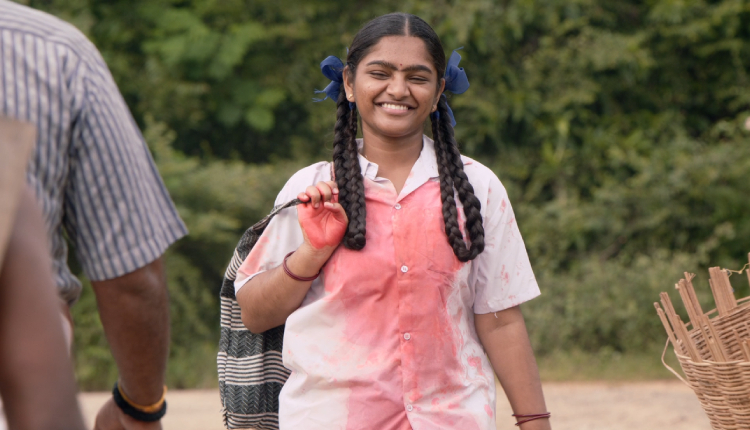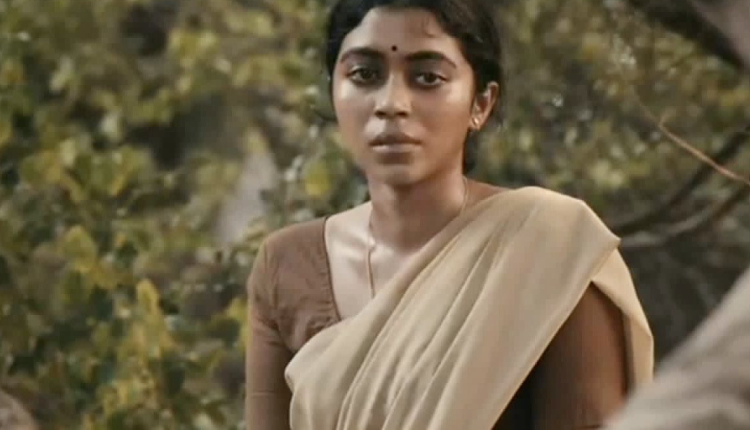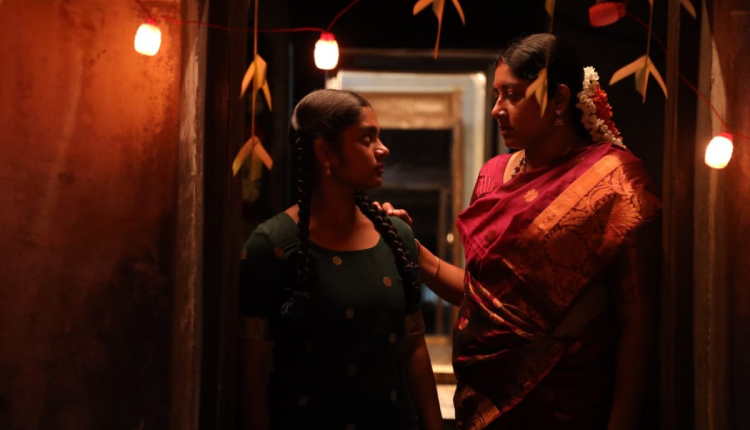Hundreds of streaming services, countless stories and a flood of content. But one series has managed to stand out from the rest. Ayali is a small-budget, Tamil web series that seems like the best one to come out of India. Set in a fictional town in the 90s, Ayali is an 8-episode series that views the oppressive patriarchal practices in the fictional town of Veerappannai through a feminist lens.
Streaming on Zee5, the series opens with the myth of Ayali: a virgin goddess who has blessed a village with happiness and prosperity. However, one day, a young boy and girl fall in love and elope from the village. A natural calamity immediately follows and the villagers decide it is Ayali’s anger at the girl who has run away. To prevent this, it is decided that in the new village, girls will be married as soon as they attain puberty.
This is the show’s premise: while the world progressed, the village of Veerappannai stayed entrenched in its customs even in the 90s. The tradition is still intact, girls are married soon after they get their first period.
Our protagonist is 13-year-old Thamizselvi (played by Abi Natchathira) who loves to study and wants to become a doctor. But this dream is impossible as no girl in the village has even entered the 10th grade, let alone pursued an actual career. Thamizselvi desperately prays to Ayali, wishing that her period is delayed but nothing can stop fate. Soon after her best friend Mythili (Lovelyn Chandrasekar) is married, Thamizselvi is forced to face her reality – she gets her first period. Determined to not give in, she hides this fact from the world and continues her study. But how long can a lie last? So begins her journey to fight the many hurdles on her way. Now that the premise is set, let’s talk about some feminist issues that Ayali beautifully tackles, and how its storytelling comes full circle in its attempt.
Menstruation:
Menstruation is not a taboo in the village. Having your period is an event of grand celebration – but only for men. Because in this village, whenever a girl attains puberty, her education is put on hold and she starts her training of being a good wife. Puberty is a happy occasion for men, but for an adolescent girl, it is the end of her freedom, her agency and the basic rights guaranteed to her.

Ayali also doesn’t shy away from showing blood on the screen. In its dealings with feminine and feminist issues, Ayali is far more progressive than a lot of mainstream movies made in the south.
Mythology:
Mythology makes tradition, and tradition makes the norm. More often than not, myths are used to limit the freedoms of a woman. The same thing happens in the world of Ayali – mythology and fear of God are constantly used to restrict any female liberty. Thamizselvi is the first female from her village to not only attend the 10th grade but also step out of town. Can you imagine? No woman has even been outside the village boundaries. The burden to carry out discipline and tradition is forced upon women. Men get away with everything.

The hypocrisy of the myth is not hidden – it blames a calamity on one girl who eloped, forgetting that a boy had run away too. There is no logic. Near the end, Mythili asks Thamizselvi a crucial question about their culture: What happened to the boy’s village? Are the men from that village married off at puberty too? No, they are not.
Dignity & Honour:
The idea of dignity and honour is so ingrained in everything a woman does – but what is this honour? And why is it a woman’s burden? Thamizselvi’s father is ashamed when she is of age but hasn’t gotten her period yet. He is ashamed that she lies to everyone to study – as if she has committed a great sin. But why is this “honour” more important to him than the wishes and freedom of his child? A man’s dignity is tied to what the women in his life & community do. Time and again men tell women: It is your responsibility to keep our village’s pride and reputation intact. But that’s not the case vice-a-verse.
The math teacher embodies the worst of male tendencies: he asks the women to just do as you are told because “Girls these days are brats. Don’t we know what’s best for them? All they have to do is obey their parents, get married, have kids and lead a silent life.” Throughout the series, he creates problems for Thamizselvi (or tries to, at least). He constantly questions her intelligence. He openly ogles at Thamizselvi (a pre-pubescent girl) to make unsettling comments about her womanhood. So, why are men and women held to different standards of honour?
In the finale, Thamizselvi’s betrothed ties her up to a pole, ready to beat her up. He says that his “honour depends on taming her”. His male pride will be satisfied only if shows superiority over a child, a teenage girl.
Female Conditioning:
Ayali does a great job of portraying patriarchy’s female conditioning. Thamizselvi’s mother Kuruvammal is her only supporter. Initially, it is difficult for her to break the limitations of her ideas, but she finally takes a stand with her daughter. Thamizselvi is a bright kid, she understands quite early that education for women is proposed, ‘the first ones to oppose it will be the same women’.

“They have goals but they hide it. In fact, they forget it,” she says. There is nothing wrong with being a homemaker, but the problem lies when women accept that living such a life ‘is a woman’s fate. You must do all the chores’.
Female Solidarity:
Ayali is great throughout, but it triumphs in the final moments when the entire female populace of the village comes to Thamizselvi’s rescue. They’re with her because they see themselves in Thamizselvi. Their male counterparts and family assume them to be stupid and in need of saving and ask the men to leave them alone for ‘we have had enough of your safeguarding.’
When her father claims that he loves her daughter more than his life, Thamizselvi calls him out, “you’re here with a weapon to kill me.” While her mother stands by her. To support her daughter. This is followed by one of the most powerful moments in the series – the women risk their own lives and devise an escape plan for Thamizselvi. They know that in order to survive, she needs to get away. But Thamizselvi chooses to stay back because she knows her singular escape will amount to nothing if the rest of the girls lose because of her. This is the true meaning of female solidarity and I’m glad to have witnessed its beautiful depiction on screen.
Obstructing Female Education:
While dealing with a multitude of feminist issues, Ayali never lets go of its core: the right to education. As told by the show’s creator, writer and director, R. Muthukumar, the idea for Ayali came from the practice of child marriage in a village near the Pudukottai district in Tamil Nadu at present times. No girl has ever studied past the 9th grade. Also, no girl is giving any information about how menstruation works. Why? Why not let them continue their studies post-marriage or post-puberty? Because education empowers an individual. Because the moment a girl gains any useful knowledge it becomes dangerous to men. It will hinder their patriarchal subjugation of women.
Thamizselvi asks her mother: “Is it a sin for a girl to pursue her studies?” No. No, it is not.
Ayali feels like a breath of fresh air, a great piece of dramatic fiction deeply entrenched in reality. I applaud R. Muthukumar for creating an intricate series and writing it with great nuance, and hope that more people watch it. This women’s day, I hope that you amplify female voices and female stories. Because there are the voices that matter, these are the voices that will slowly change the world.
– Article by Naina Rathi.
We will be delighted to have your thoughts and feedback. Please write to us at [email protected]
Follow Life and Trendz on Instagram: https://www.instagram.com/lifeandtrendz/
Facebook: https://www.facebook.com/lifeandtrendz
Twitter: https://twitter.com/LifeandTrendz


Comments are closed.